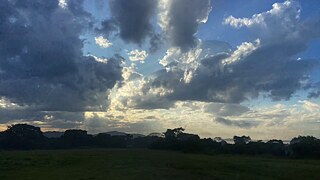Episode 15 – Kampala

Featuring:
Authentically Plastic
DJ Flo
Martin Kanja
Nsasi
Rey Sapienz
When Creativity Meets Chaos
Episode 15 of the Timezones podcast series, co-initiated and co-produced by Norient and the Goethe-Institut. This episode offers insight into the uncompressed music scene in Kampala, Uganda. It looks into the evolution of (underground) club culture and shows how house parties contributed so much to create the roots of feeling safe and a support system in the music community. It further discusses the importance of the Nyege Nyege label and festival that has gained massive international attention lately.To be released October 5, 2023
When creativity meets chaos. The insights into the uncompressed music scene in Kampala.
[0:40] Nsasi
If the visibility and resources allow, I see Kampala skyrocketing in a couple of years. I mean, we’re already seeing names from Kampala doing big things, doing great things. There’s so much knowledge musically here and it’s all super organic. All we need or everyone needs is just the resource capital in a way. Then you will see for yourself but it is that limitation for lack of different resources to afford computers, afford equipment, also just being able to have a livelihood. As an artist, you find yourself tied up mostly into the other hustles of life and you know what you’re really passionate about and all you want to do is music or any form of art that you believe in. I’m speaking for myself.
[1:43] Rey Sapienz
Hi. My name is Ray Sapienz. I’m Congolese music producer. I live in Kampala, Uganda. I’ve been doing music with bands with the electronic instruments like guitars, keyboards, and pianos. Since we got into music production, I’ have been working with producers. Somebody who was doing production stuff produced for me. I was just thinking that it’s something I couldn't do, but I could do it. In 2017, a friend came to work with Nyege Nyege and they called me and he just gave me a computer and the first software was Fruity Loops (FL Loops). They opened told me that this is how it’s done. And I opened some tutorials. I actually stayed up all night and tried to do something. Then the next day I got Ableton without a license. Also, I used to work with a producer called Max Ledorn. He came for the Nyege Nyege residency and he used to send me beats. He left his book with me, the Ableton book. So I just read that book.
[2:59] Turkana
I sometimes think about the importance of music education or history education and the choice of what we’re taught as people growing up. You never get to find about incredible African artists or music makers. And it limits the way you view yourself as an achiever when you don’t see a certain kind of people winning in music. And obviously when you look back at history, there is so much music invented by Black people, but when you are being educated or the information you always find across, it’s very hard. It’s always like Western focused.
When you think about African incredible artists, you think of Fela Kuti. There are so many other people, but there’s people you never get to learn about. And it blocks the level of creativity and level of imagination when you don’t see yourself in a certain picture. And I love it right now because you get to listen to stuff that is connected to who we are, but also elevating and taking different directions, experimenting, learning from different cultures and different people because I think that’s where incredible work comes from, where you don't only consider just what you know but look into other things that are not even part of you and get inspired and create something new.
[4:41] Rey Sapienz
I do just a lot of it and sometimes I find a good one, I then continue working on it. Every morning I drink coffee and I just feel like I want to make the music out of something. I usually start with melodies and then mix in the drums.
[5:03] Nsasi
There’s so much respect, there are so many artists, so many young creatives pushing the boundaries. So I’m honored to be one of those artists coming up in Kampala. And most of them are my friends. I hear stuff that is pushing boundaries, that pushes me to also get going. This is every sound you can think about. It’s there! Even the artists in Kampala are just taking this into consideration and finding just freedom to explore, play around with anything. I see it, I hear it every time, randomly, whether I end up searching for music and updating my folders. So Kampala we are there, we are there!
[6:07] Rey Sapienz
With electronic music, it especially started, with boutique electronics which is Nyege Nyege now, there were a few electronic DJs. All the DJs were the ones who play mainstream music in clubs. But no one was trying to play some stuff that is already existing, and the electronic traditional musical team all I can say is that they tried to play some techno.
A special energy for music. What also inspires me most could just be going to the club dancing or enjoying the music that I find there. Musically, Ugandans play all kinds of music in the world, all the music in Africa. Because the music scene started a bit late and it’s the mainstream scene with different cultures. This is so inspiring. It makes the music culture very different. Living there, you have to also own your cultures that you have and with music, everything just become magic…
[7:42] DJ Flo
Takes you in space, takes you high, makes you high, go higher and crazy and you feel like you want to listen to that track, you want to listen to the beat, you want to keep on listening to that and getting hard feeling it and you don’t want to stop. So in a couple of years Kampala music is going to be hardcore insane. It’s really crazy and amazing right now. I would say a lot of producers have this crazy, good, deep thinking about the music....
[8:25] Authentically Plastic
I like to be out in the open. So I don’t like working in the studio, I want to be out in nature, just with my computer trying to create beats. I work on Ableton mostly, so either I am working with a Push or working directly on my computer. I like writing music, it gives me a bit more control over the process when I’m making music. I think there’s kind of two sides to my process. There’s more of this controlling figure and then there’s more like this figure that’s like the adult figure, this controlling figure, and then it’s more than the figure of the child who is breaking all the rules. So it’s like constructing rules and breaking them.
I like to retain even while being very controlling to keep a level of playfulness over my process. I like to create like this wall of sound in Ableton just being playful with my computer or like the controller. I create all these random sounds and then later it’s like I come at it as an end out. Trying to create order out of the chaos but not too much order because I like to keep this feeling of things being on edge. Still, in my production, I’m playing with that tension between chaos and order!
[9:49] Turkana
Think about today and this time where we’re living in the power of the media. Media has always portrayed so many things in different ways and when people write stuff sometimes they haven’t experienced what they’re writing about or they’ve never even been in space. And I think the media plays a big role in how music is distributed and what kind of music is out there. I feel like sometimes there are people trying to make you blend into a market that is comfortable for them or you have to be a certain way or you have to sound a certain way to play a certain gig because it makes those people feel good though. But then there’s no realization that’s different. I do not come from the same place you come from and my music has nothing to do with you. And it’s important that we relate cultures and understand different sounds. But the idea of you have to sound this way to play in a certain place is quite absurd.
[11:07] Authentically Plastic
A night out in Kampala? Well it depends where you go. I mean, there’s obviously the mainstream clubs in Bugolobi, Bandali Rise and stuff like that. There you have a lot of Niger music which is really amazing. I really love when they play amapiano; as a popular form of music it’s very weird and it has very weird patterns and bass lines. I find it interesting that this kind of music could become so popular. Seems completely paradoxical, but I guess it speaks to the richness of South African culture.
And I mostly like going out to my friends’ parties which are more like underground spaces although it’s been a bit tricky recently with underground club spaces. It seems like the spaces have been shrinking more and more. It’s suddenly harder to find spaces for underground music. And this is something that came out of the pandemic. But I think it makes those parties even more magical when they happen because the space is so limited that every time we come together, it’s somehow a miracle. And that’s nice.
There are things about Kampala that inspire my creativity. I always say the freedom of movement here is something that really inspires me. It feels like on any street you’re on, there’s these different kinds of speeds in one space, you have the cars, you have people walking, you have the Boda Boda. The street is a bit unruly, which causes a lot of problems but also it can be very inspiring being in a space where there’s so many styles of movement in one space.
To me, that’s inspiring and there’s a level of simultaneity there that I try to bring to my music in terms of different speeds and rhythms that are happening at the same time. I think that is very much a Kampala thing or maybe, should I say, it’s very much a Global South thing. I also love how friendly people are in Kampala, it’s just very easy going. You meet people and within a short time you strike up a conversation. I think it’s really one thing that’s very special about this space – how hospitable and friendly everyone is.
[13:36] Nsasi
I do not know so many festivals here apart from Nyege Nyege Festival. I actually think it’s just Nyege Nyege Festival. They have a variety of music globally which has kind of shaped market consumption. They’re not scared to risk. They’re not scared to throw that sound in as it is. So I feel like this shapes distribution of music here because if the label is really super calculative on how hard you can go or how careful you should be with experimenting for example with sound, that affects distribution in a way because you’re not shaping up the ears of the market you’re trying to create. And I feel this is a great thing that Nyege Nyege is doing. And it’s the only festival that I here...
[14:58] Authentically Plastic
It has just been so interesting because just putting together all these artists and styles from all over the continent and the region has created a very interesting melting pot. So I think before Nyege Nyege, there wasn’t anybody doing curation on that level.
Also, the fact that they run this artist’s space called “the Villa” has been a big help because lots of people go there and use the studio. The queer house party scenes really did something amazing in Kampala. There was a lot of crossover between Nyege Nyege and those parties which my friends and I used to throw. They just created an environment of openness where it was okay to be queer, created a space for even other hetero artists from the Nyege scene to kind of see that you can live in this actually like a free space and you can live with people of other orientations and it’s no problem. We are all just people and we’re all just artists.
Out of the queer house party scene I think that’s what inspired me to create with me and a bunch of friends to create our events called “Anti Mass”, which are queer raves that we have all over Kampala. With Anti Mass, I’m not going to lie, it’s been really challenging finding new spaces, especially after the pandemic. When we started out, we were surrounded by people who were quite open to allowing us to use their space so that was great. It’s gotten a bit more difficult over time. Being a queer party. There’s also a risk of police raiding the event and maybe certain event spaces don’t want to be liable or they don’t really understand what we are trying to do. We’re living with all these layers of potential sabotage and police intervention. As a queer party, we’re just being persistent and trying to find the right people to work with. And now we do have people we work with that of respect us. “Kind of respect us.”
It’s been okay collaborating with our sound people and lighting people, things are more or less stable now. Growing as a label, we have one release out and we are working on a few more to come out during 2023 because we are such a small group. It’s been just super organic. It’s even a bit weird to call ourselves a label. It sounds so industrial! But it’s just us getting together making music and just releasing it organically.
[17:52] Authentically Plastic
In a place where the ground is poisoned, you know, where the state is by default against you. That has proved challenging. It affects our mental health and our focus on creating events but then when we actually get together and create an event and it’s done and it was a success, it feels amazing. It feels like every time we have a successful event, it’s a miracle. So thankful for that and to have each other to support each other in that process.
The way forward with growing the label is more international collaborations and local collaborations also. But I think international collaborations specifically would be amazing to grow the label beyond its specific geography. I think that’s very important to make these musical connections that are not just about this hyper local – you see how these local energies change when they meet other energies from elsewhere. What kind of art can come out of that?
[19:06] Nsasi
I am more in love with creating out of the city Kampala. I don’t really get so much inspiration, living and creating in the city because I do live in the city. I mean, I’m always inspired by different daily occurrences around my day-to-day life and this is mostly in Kampala, but I do love creating out of Kampala. I do draw some mood board from existing situations of my everyday life. I’m mostly inspired to walk out of the city because it’s calm, to give my brain the horizon to explore with different sounds of nature. It could be with smells, could be within the drive out of the city. Just anything could give me that great inspiration to scratch into my computer. I always have my computer on me, dropping sketches whenever I am inspired. Sometimes I just write it down as a little note.
[20:24] Nsasi
Releasing more music and working with so many other artists and fostering more collaborations beyond boundaries. We need to push boundaries and have bigger projects for 2023.
[21:03] Rey Sapienz
The appearance of many new producers and DJs inspiring each other. Many artists are trying to do different things and also the influence of you can say DJ Kampire. She’s hardcore. Many girls got into DJing. Before, the scene was a bit very patriarchal. Booking a girl to perform was very hard before, it was just very different. It’s a revolution now.
Everyone wants to get inspired by how the first people did it and they focus on making it and they never care of paying for two people or three people. But by the time people start enjoying because it’s the same, it’s the same and even they are better, they’re better DJs, actually. Nyege Nyege gives the opportunity to everyone actually to play even up to the traditional music which was there, which was head… Actually electronic is kind of very pompy in the club. Everyone can dance to it when it’s played it in club no one could play it, however, with the appearance of the new DJs, they play the music of every kind and every new music.
[23:21] Martin Kanja
Normally my work process starts from a concept or an idea that I want to address regarding how I’m feeling or what I’m going through at the moment. And then I will fuse it with sounds that go with that mood and the lyrics to further enhance the message as I send it. When I have an idea, I’ll start by arranging the sounds from different instruments because I play everything so I can just put guitars in there or just some drums to begin with and I grow from them. Usually sometimes I even start from my vocals as the main instrument. Then I build the sounds and the textures from my vocals together with the concept. So if the concept is a dark one or a futuristic one and I’m hoping for something in the future, I will address it like that and make that it sounds like a score.
In Kampala, people have shows every day of the week, normally you can find a show on a Wednesday and people have fun. It is a bit relaxing and good here and chilled out. So people have all this energy and they want to unleash it and they're very open to anything that binds and moves their bodies and gets them partying. So I would say the Kampala music scene is very authentic, open, friendly, and it’s very wide…
[24:53] Martin Kanja
Kampala as a space really inspires my creativity in a sense that it’s very green and the lake is just next to it and beautiful and there are different places where you can go to meditate, relax and chill. It’s also very easy to live here and the housing is affordable. Artists mostly need a roof and some regular stuff to party on and food and water. Kampala is very scenic itself, it’s very green and hilly. There are different spots you can go to that have trees, wildlife and the lake is just close so it is very beautiful. I can go there and meditate, it’s really good for me because as an artist I really need that. I do metal and the metal needs somewhere where there’s nature and away from humans. So there are also islands around Kampala where you can chill and get in the zone.
[25:56] Martin Kanja
Elon Musk SpaceX kind of vibe because this is like the center of like music right now in Africa. It’s very open and people are friendly and they’re open to new genres of music and to experiencing new ways of playing and getting the energy from different artists who just come in and out. So it is also easy to fly and come out of Kampala. So I think in the next few years Kampala is going to be a very international music scene as already it is.
It’s a very good environment for all this because there are more people and music producers who come together and bridge together and also there are festivals happening here that are really international. There are also different studios here that offer residencies and are very supportive to young upcoming artists as it’s always up to fresh blood and fresh skin in the game. And it doesn’t need so many get kicked like in other scenes because everyone here does it themselves. So it’s always a good way just to you believe in yourself, you do it and don’t need to change who you are and you still get it like the way you would want to get it. And it’s a nice way to bridge yourself to the other artists in the world, international scene in the world because there’s a lot of infrastructure ready in place here with studios and festivals and the environment really is the one that is encouraging. You will record something and play it the next week or the next weekend somewhere and they will see the reactions from the crowd. So it’s a very good way for artists to know what they’re doing and for you to engage into the system and how it’s working.
[28:09] Turkana
Think about today and this time where we’re living in the power of the media. Media has always portrayed so many things in different ways and when people write stuff sometimes they haven’t experienced what they’re writing about or they’ve never even been in space. And I think the media plays a big role in how music is distributed and what kind of music is out there. I feel like sometimes there are people trying to make you blend into a market that is comfortable for them or you have to be a certain way or you have to sound a certain way to play a certain gig because it makes those people feel good though. But then there’s no realization that’s different. I do not come from the same place you come from and my music has nothing to do with you. And it’s important that we relate cultures and understand different sounds. But the idea of you have to sound this way to play in a certain place is quite absurd.
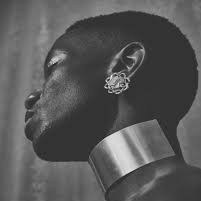
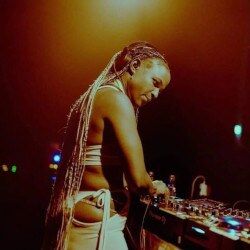
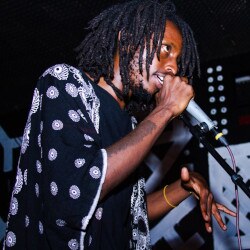
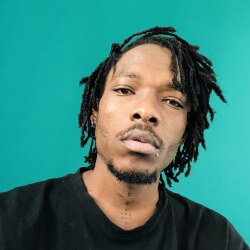
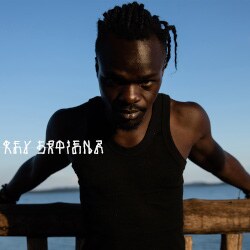
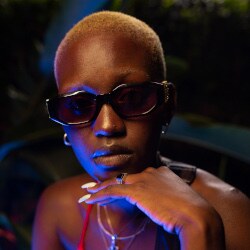
Turkana is constantly pushing to learn new things and experiencing people and music. She is an Anti Mass’s resident and has been making waves in Kampala’s underground scene since 2019. She played Nyege Nyege Festival and CTM Festival 2020. Played Boiler Room in isolation in 2020. Often playing at Underground parties in Kampala, also under Anti Mass a series of roving, riotous, art and music happenings based in Kampala. She is also part of Fourmanysisters, a femme spirit female collective party under Nyege Nyege. She had her first Europe tour in 2021, playing in over 10 festivals and radio stations. Turkana is currently working on a collaborative project between Nevernormal and Anti Mass, the compilation will result from combined experiments between African and Afro-diasporic artists. Turkana is also spending time working on her EP with Hakuna Kulala in Kampala.
Follow her on Instagram or SoundCloud.
Contact: angettekevy@gmail.com
Bonus Material
Nature, Nurture, Chaotic Inspiration
moderated and produced by Gloria Kiconco
Can Western-inspired media capture the true nature of the genre-bending music coming out of Kampala while also restricting it to categories? How does creativity thrive in a city where underground spaces are shrinking? In this bonus talk, Turkana and Nsasi, members of the Anti Mass collective share further thoughts on Turkana’s TIMEZONES episode from Kampala and delve into the relationship between media, music, and the compulsion to classify sound. They explore the push-pull dynamic they have with Kampala as a city where chaos is an ingredient in generating creativity and the reason artists seek nature and solitude outside the city. This talk, moderated by writer Gloria Kiconco, develops a portrait of the city as a resistant and nurturing space birthing “uncontrollable sound”.
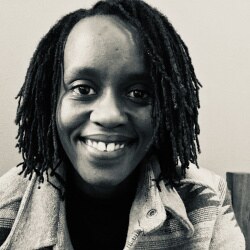
Credits
Credits:
Artistic Editor: Abhishek Mathur
Project Management: Hannes Liechti
Video Trailer: Karrl
Sound Design: Turkana and Rey Sapienz
Jingle Voiceover: Nana Akosua Hanson
Jingle Mix: Daniel Jakob
Mastering: Adi Flück, Centraldubs
Artwork: Šejma Fere
This episode is supported by:
